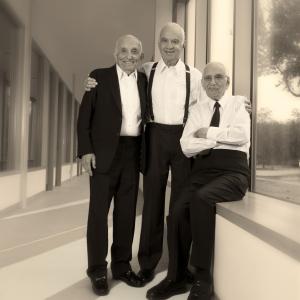Jack, Joseph and Morton Mandel Foundation’s latest gift for interdisciplinary study continues long history of university support
Aidan Bugayong spent the summer before his sophomore year of high school building an artificial intelligence program that used hand motions to act as a computer mouse. He was excited by his progress and asked his dad to test the program.
But suddenly it didn’t work.
Bugayong, who is mixed race with lighter skin than his Filipino father, quickly realized the issue: The sensor couldn’t recognize darker skin tones. This was his first exposure to bias in technology—and one of his motivations for joining Case Western Reserve University’s new Experimental Humanities program.
Aimed at integrating the humanities with STEM (science, technology, engineering and mathematics) fields, the program was established with a $2 million grant from the Jack, Joseph and Morton Mandel Foundation in 2023.
Encouraged by early successes, the foundation soon added another $1.5 million to its original commitment to expand and enhance the program.
“It’s vital that we prepare young people to lead in a world that continues to grow more complex as technology rapidly advances,” said Mandel Foundation President and CEO Jehuda Reinharz. “We are deeply committed to the expansion of humanities education in the STEM fields, knowing that the exploration of art, literature and philosophy lead to a more compassionate and democratic society."
This gift from the Mandel Foundation is the latest in a philanthropic relationship with the university that spans more than four decades and exceeds $68.5 million in cumulative support.
“The Mandel Foundation has been a longtime leader in support for innovative programs at the university,” said Case Western Reserve University President Eric W. Kaler. “This additional grant to the Experimental Humanities initiative will help to advance the next generation of interdisciplinary research and experiential learning needed to solve the world’s greatest challenges.”
The pilot program includes nine first-year CWRU undergraduates who comprise the inaugural cohort of Jack, Joseph and Morton Mandel Fellows in Experimental Humanities.
Bugayong, a double major in computer science and data science and analytics, is one of them. He plans to research implicit bias in technology and data inclusivity, while other fellows will study topics such as ethics in environmental engineering, political motivations in STEM, and the intersection of neuroscience and music.
The cohort’s members bring diverse interests and strengths to the Experimental Humanities program, the core components of which include a new major in the field and funding support for research projects.
The latter builds on the mission of the Expanding Horizons Initiative, which was launched in 2021 to provide faculty members with seed funding to pursue novel research while offering students hands-on learning opportunities and mentorship.
In an effort to increase interest in the humanities and expand interdisciplinary collaborations, Provost and Executive Vice President Joy K. Ward, PhD spearheaded both initiatives while she was dean of the College of Arts and Sciences.
“I have long believed our students would benefit greatly from an education that is grounded in the humanities yet also combines the ability to work effectively across science and technology,” Ward said. “I am thrilled Case Western Reserve will have the opportunity to grow the program and enable leaders in the ethical use of emerging technologies.”
The program also includes four faculty fellows, with Distinguished University Professor and Florence Harkness Professor of Religion Timothy Beal, PhD, as project lead. Beal is director of CWRU’s h.lab (humanities lab), which provides humanities students with opportunities for experimentation with emerging computational technologies. His experience made him a natural fit for the Experimental Humanities program.
“This initiative is more important than ever, as our ability to create technology is wildly outpacing our ability to understand it,” Beal said. “We’re bringing together seemingly disparate interests in constructive, creative ways, while providing students with leadership and community-building skills they can use to be transformative leaders in whatever spaces they occupy.”
Originally published in the summer 2024 issue of Forward Thinking magazine


